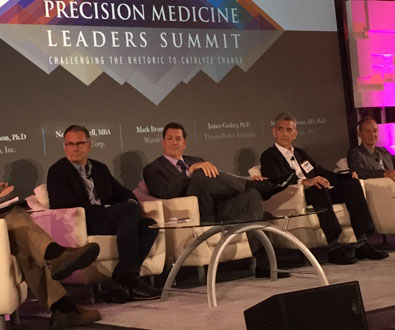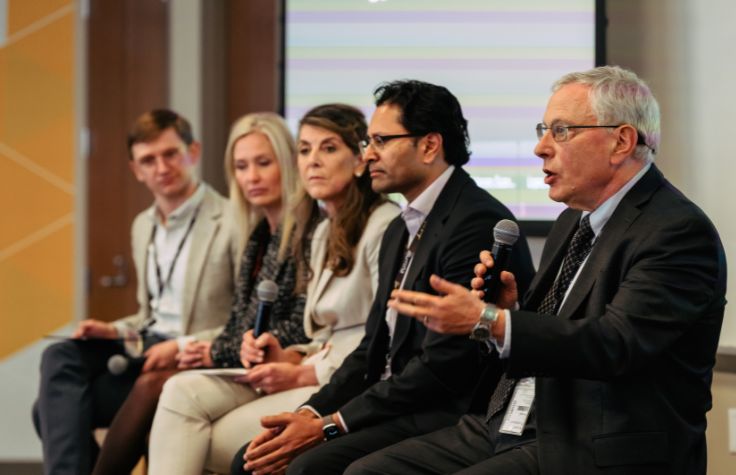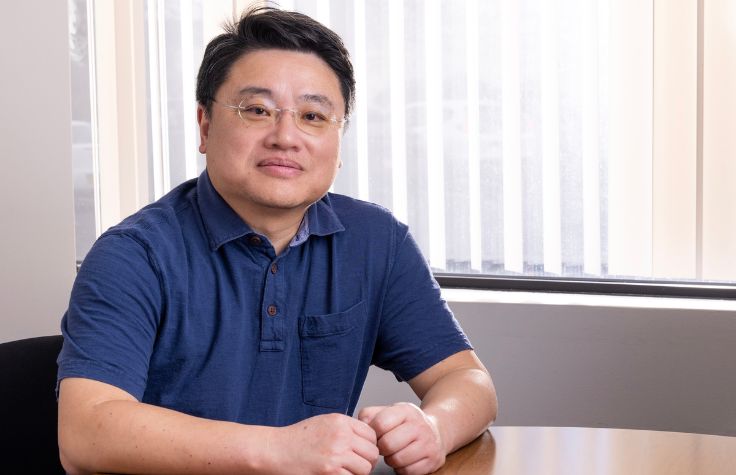
2016年8月22日
Precision medicine—health care that is tailored to an individual’s genetic makeup—has been showing great promise in the areas of cancer and disease research. But according to a group of genomic and health care leaders who came together at a panel discussion earlier this month, more work needs to be done to move it into clinical practice.
More than 70 executives in life science, technology, and health care gathered at the inaugural Precision Medicine Leaders Summit in San Diego to collectively focus on the challenges and opportunities the industry faces in personalized medicine.
The aim was to bring together key stakeholders to have candid discussions on the realities of bringing precision medicine to practice. At issue are the regulatory hurdles in adopting next-generation sequencing (NGS) in the clinical market, standardizing processes in sample collection and linking the enormous amount of genetic information from patients together in databases.
From the tool box to the pill box
Illumina Senior Vice President of Strategic Initiatives, Alex Dickinson, spoke about the tools and technologies that enable precision medicine, from research discovery to patient treatment and compliance.
“There is an interesting cultural shift happening at this moment,” Dickinson said during a panel discussion on the technology development cycle. “At Illumina, we aim to exceed customers’ expectations by providing a strong, powerful sequencer as well as a complete solution with informatics and reporting that complies with a regulated and cautious ecosystem.”
Other panelists noted that utilization of resources is expensive and adoption of precision medicine techniques requires careful thought and analysis through the technology development cycle and beyond.
“When you think about comparing one individual to another or to a population, you need those technology tools to make that happen,” said panel moderator, Stephen Naylor, PhD, Mai Health, Inc. “How do you address those key issues in terms of trying to meet perceived need and push the field forward?”
The speakers acknowledged a barrier of implementing technologies lies in the time and resources needed to reproduce and prove clinical validation, but they also predicted that clinical utility can help speed adoption—even in a heavily regulated, clinical industry.
When there’s a clear value proposition, both in terms of the quality of care and also the cost of care, adoption can happen quickly, the panel concluded.
Moving forward
Participants heard discussions on a broad range of topics including patient diagnostic odysseys, population health, navigating regulatory landscapes, payer reimbursement, and the voice of the patient.
Illumina Vice President of Oncology, John Leite, PhD, led a roundtable breakout session focused on strategic partnerships to move stakeholders in a direction of working together and finding new opportunities to bring real value to patients.
The three-day summit wrapped up with the group supporting the value of precision medicine, but acknowledging the long road to bring it to clinical practice. The summit—which brought together diverse, key stakeholders— presented a great environment to start.


